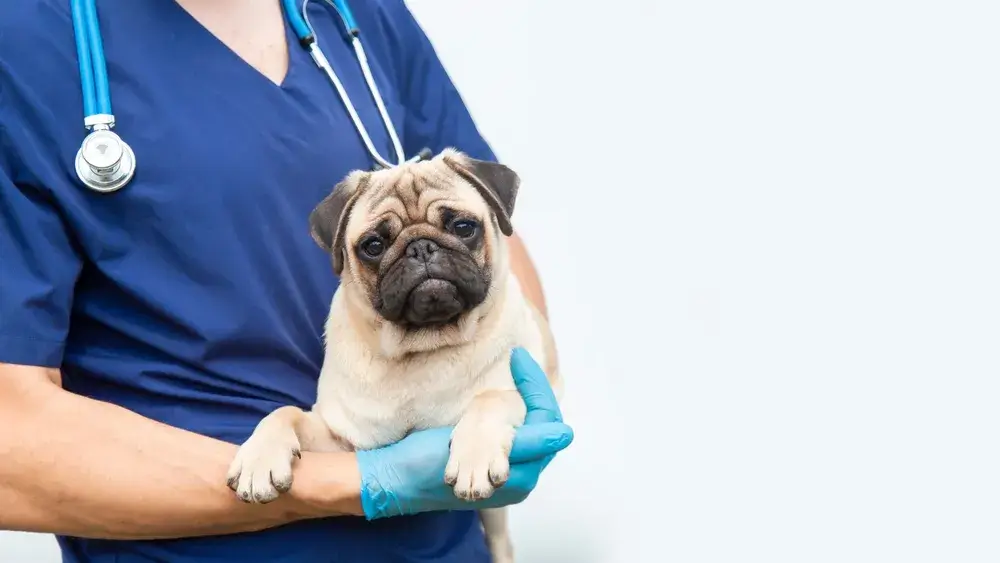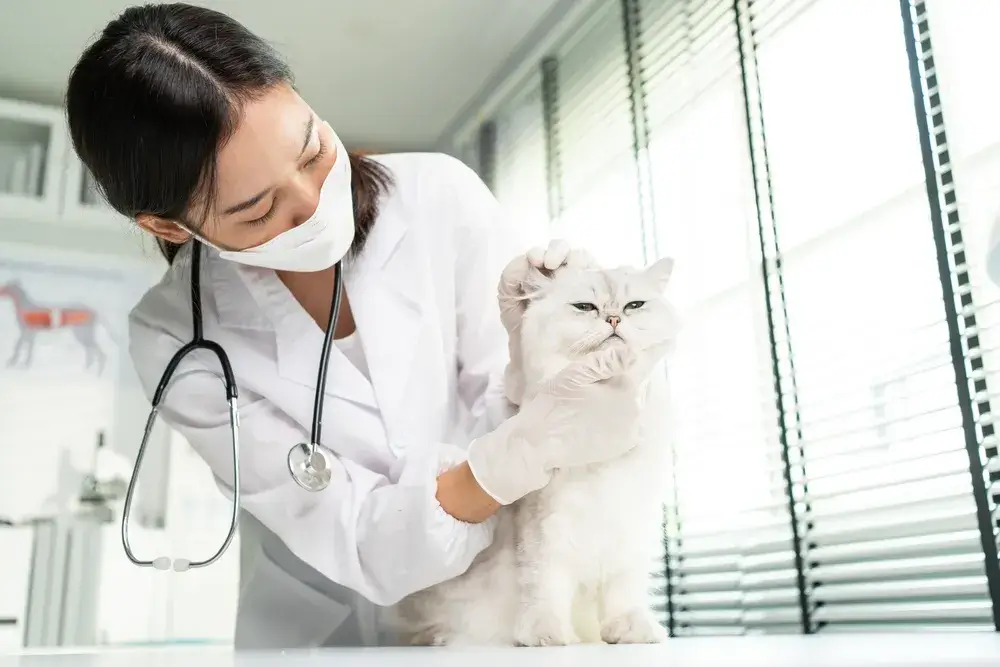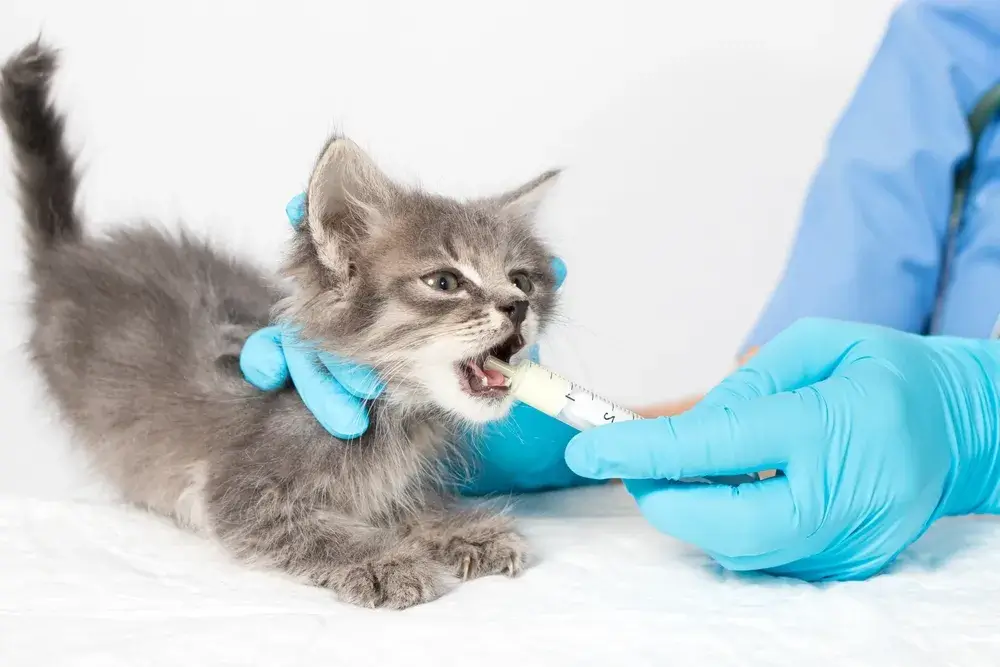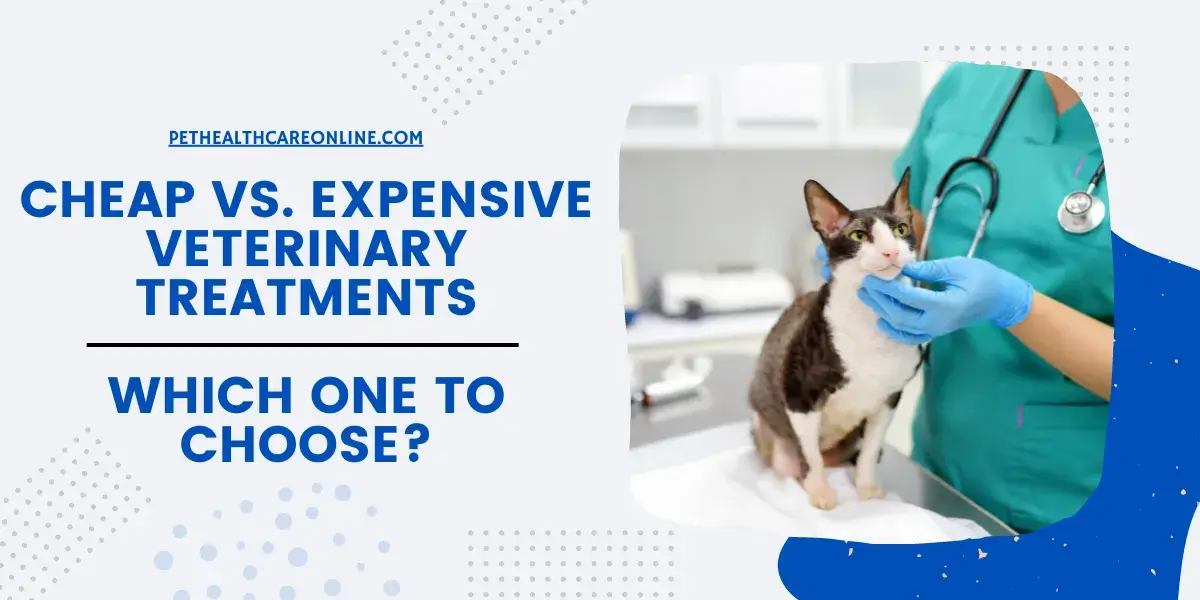Veterinary treatments do not cost the same in various countries across the world. However, in most parts of North America and Europe, they can be extremely costly, which is one of the main reasons pet owners choose to get pet insurance in the first place.
In today’s article, we will be looking at why these costs are so high and what are the main differences in cheap vs expensive veterinary treatments.
What Influences the Cost of Veterinary Treatments?
The Pet’s General Health Status and Age
If you’ve ever cared for a cat, dog, or any other animal species that can be considered a pet, you probably know that younger animals whose immune systems function perfectly only require a series of preventive treatments.
These can range from regularly administering biological products such as vaccines, which can protect these animals against highly infectious and potentially deadly diseases, to regular deworming procedures, especially for pets who tend to spend some time outdoors, too.
As your pet ages, though, their health is likely to decline as well. This is a situation that isn’t uncommon in humans, either.
Regular screening is necessary once a pet gets to the age of 6 or 7 (especially for cats and dogs), which means that you will have to take your companion to the animal hospital just to have common procedures such as blood tests done (a complete blood count and biochemistry) or more advanced ones such as ultrasonography.
The cost of all of these procedures can quickly add up, which is why we urge pet parents to be judicious with their expenses and have a savings account for their furry friends just in case something happens.
Cheap vs Expensive Veterinary Treatments Medicines
Veterinary treatment costs also depend on the exact drugs that are used to treat an animal. However, these days there are a lot of companies that have purchased a patent from large pharmaceutical brands that have come up with the recipe in the first place.
So while a cheaper alternative almost always exists, it also depends on the way the drug is manufactured, its exact concentration, and how appropriate it is for a specific animal.
Some of these drugs have been on the market for many years, and during that time, they were put to the test by various national and international veterinary drug associations that might have deemed them effective or not.
A more expensive medication might be required in cases where the animal has a rare condition, for example, for which they might have to be treated for the rest of their life.
Cancer medication tends to be particularly costly in most locations across the world, but that’s also because many advances in this field have been made in the past one to two decades. New drugs are coming out every year, and a series of them could be very helpful even in the most challenging of cancer cases.

Veterinary Practices and the Cost of Running One
This is another factor that tends to heavily influence the cost while considering Cheap vs Expensive Veterinary Treatments.
Running a veterinary practice is not cheap in most countries, and the reason for that is that besides the staff (which obviously needs to be paid on a regular basis), there are other costs involved in terms of management, upgrading the facilities, making sure that all of the approvals from the local associations are done on time, and more.
Even utility bills can quickly add up when it comes to an animal hospital because the expenses in terms of electricity, heating, water, and more do not even come close to whatever a homeowner might have to pay for the same things.
Why It Costs More to Get Your Pet Seen by a Veterinary Specialist
Veterinary specialists are people who have not only graduated from Vet School but who also spent a lot of time (and money) getting an additional degree that helps them perform tasks that most other vet practitioners aren’t attested in.
In most countries out there, even regular vets have to tend to something called ‘continuous education,’ where every year, they get a number of points from the local veterinary college, and based on that figure, they are obligated to attend conferences or workshops that can improve their skills.
As you can imagine, veterinary medicine has evolved a lot over the past several decades, which means that vets need to keep up with as many of these advances as possible so as to make sure they’re giving pets the best possible care.
Participating in such events can cost a lot of money, especially if they’re for extremely specialized skills.
Even doing an internship or getting a Ph.D. in a specific field tends to be very expensive for most people out there, so that’s why their services further down the line will cost more.
OTC Veterinary Drugs vs. Prescriptions
A series of affordable over-the-counter medications do exist and can be sold by various manufacturers or intermediaries based on whatever these drugs are capable of doing. So it is recommended to to carefully go through Cheap vs Expensive Veterinary Treatments in your country.
We mentioned dewormers at the beginning of the article, and they’re extremely common and easy to buy, even online, just for the convenience associated with them and the fact that most pets need to be dewormed regularly anyway, whether they get to be seen by a vet or not.

However, when it comes to prescriptions, a wide range of medications fall into this category. Some are, of course, risky and can’t be sold online or offline without a prescription, such as anesthetics or sedatives.
But even the most basic of antibiotics have to be prescribed by a veterinarian.
To give you an example, if you were to have an antibiotic in your home and your pet would have an infection, you could attempt treatment – but you never know if the antibiotic is, first of all, appropriate for the animal species or if the exact germ that has caused the infection is even sensitive to the substance.
When you take your pet to the veterinary clinic, and an infection is diagnosed, the vet will proceed to send out a sample to the lab or have a microbiologist perform the test in their practice so as to determine the specific medication that works best for that particular case (this is called an antibiogram).
Vets can also instruct you on how you can administer the medication if your pet can take an oral alternative instead of you having to take them to the animal hospital every single day for the duration of the entire treatment.
In the majority of cases and depending on the availability, vets do not have anything against prescribing medication so that the pet takes it at home, especially if they are aware that the pet owner might have financial problems and this could be the only way for the animal to get the right treatment.
Pet Insurance and Its Barriers
A good way of circumventing the expenses of veterinary treatments these days is to get pet insurance. At least, in that case, you can be reassured that a part of the total cost will be covered by the insurance firm.
However, there are significant limits to pet insurance policies. Moreover, their price can largely differ based on the health and age of the animal and also the company itself and what it can offer from one package to the next.
When your pet is young and fairly healthy, you can definitely get one of the most basic policies, but as they age, the cost will increase, and you have to look for more coverage just in case a chronic illness affects your companion.
So, while pet insurance is definitely a great idea for pet owners across North America and Europe, it is not a universal solution for every problem.
Generally, it is a good idea for you to have both pet insurance and a separate savings account for your pet. Try to save up to $5,000 as time goes by in case your pet gets involved in an accident and your insurance firm might not cover more than half of the total cost, for example.
To give you a few ideas of what the price of some procedures might be, an X-ray for an average-sized dog can cost as much as $200 or more. An emergency visit, depending on the severity of the health problem, can set you back anything ranging from $200 to $600 or more. IV fluid therapy alone can cost $100, and that’s not including the hospitalization.

Can You Reduce the Costs?
While it is practically impossible to make an assessment of whatever the cost of a specific veterinary treatment might be because there are so many variables that need to be considered, you might be able to rely on several solutions.
In most places in the world right now, there are veterinary clinics that get sponsorships either from the government or their local authorities or from people who regularly donate to them.
In these places, the cost of veterinary procedures and treatments tends to be lower. For instance, if you’ve recently adopted or bought a pet and you can’t afford to go to a high-end veterinary hospital, you might be able to get their vaccines or even get them spayed at a lower-cost clinic.
Do consider that this is only a solution for the short term and that most of these practices do not come with the advanced diagnostic technologies that can be found in higher-end ones. This means that the basic ones might not have an X-ray machine or even an ultrasound machine, or they might not even have a blood chemistry analyzer.
As your pet ages, you will have to make a financial effort to support their health and switch from a mentality where you only ensure that they get their yearly vaccines and check-ups to one where you can expect the worst.
Most geriatric animals develop a chronic illness at one point or another and making sure that you’re giving them the best care in terms of veterinary assistance and medicines should be a priority for any responsible pet parent.



